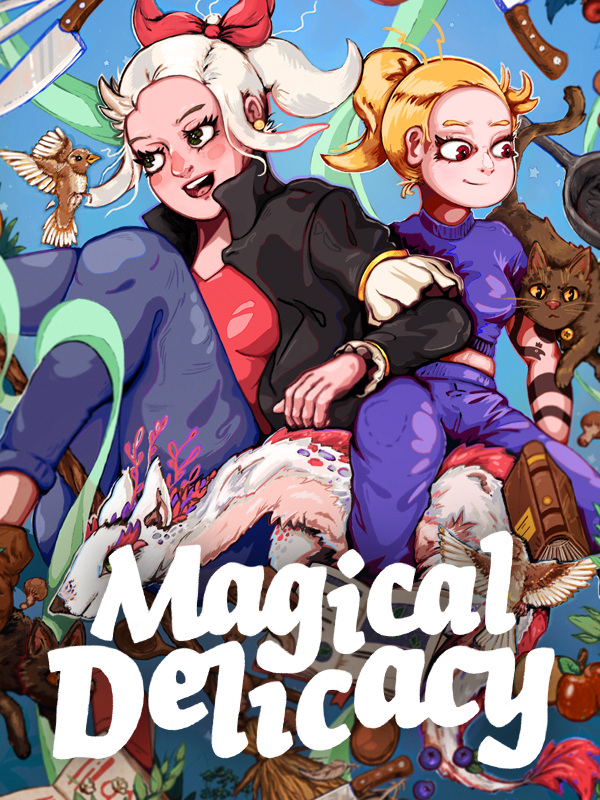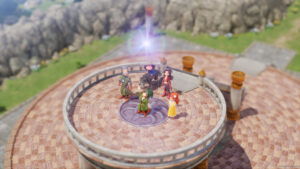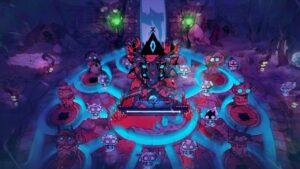I am always a fan of a good simulator and have come across a variety of them including farming, racing and life sims. When I saw Magical Delicacy announced, I thought I’d be adding a cooking simulator to my list of favourites, but it has turned out to be so much more wrapped up in a cozy little package.
Magical Delicacy follows Flora, a witch, as she moves to a city called Grat, opens her own shop and learns the ins and outs of the town, other witches, and mysterious beings. In this world, witches can use their magic to cook and create potions, but there are a lot of other skills to master here, too. I didn’t think a “Metroidvania-inspired wholesome cooking game” was something that I needed, but after over 60 hours in Magical Delicacy, I’m still clamouring for more.
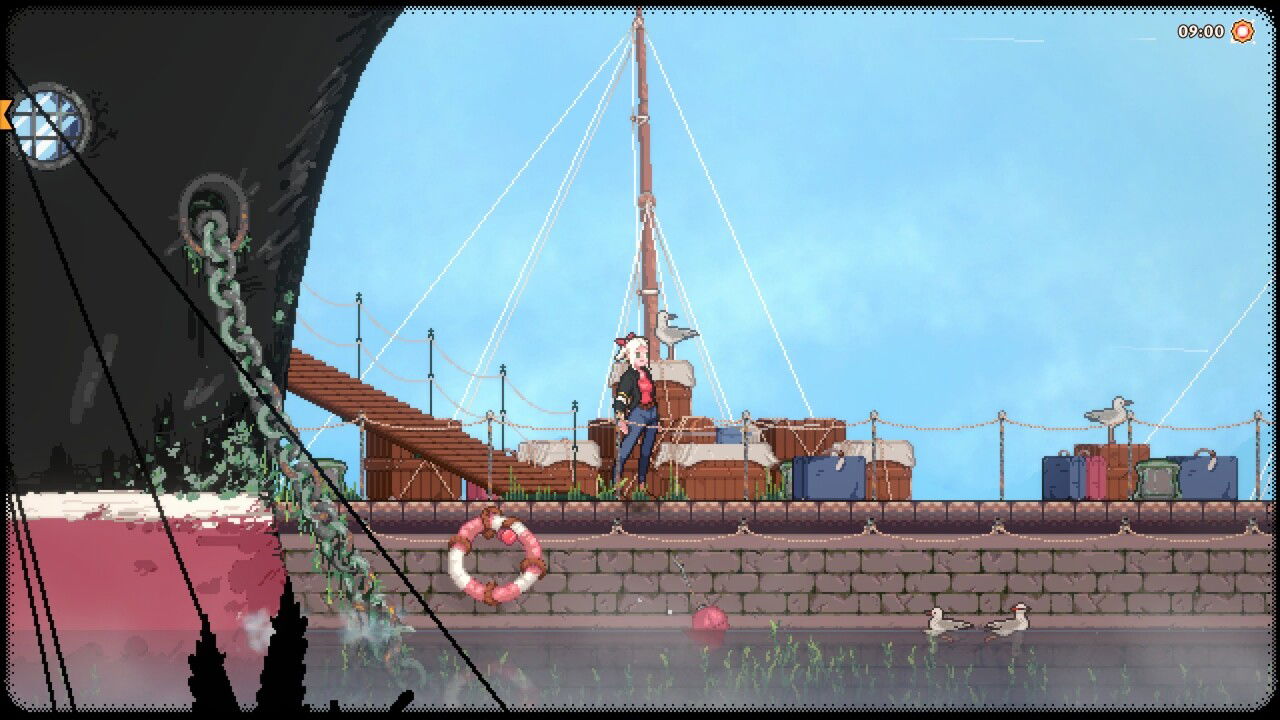
Before I dive into anything else, I need to mention that Magical Delicacy was developed by a single person, sKaule, and this is no tiny indie game. As I mentioned, there are possibly hundreds of hours available between exploring, cooking, and just enjoying the beautiful aesthetic the game brings. Even for a larger team, this would have been an incredible undertaking, so I want to applaud them for an outstanding job.
“…after over 60 hours in Magical Delicacy, I’m still clamouring for more.”
I loved the animations in the dialogue and the way Flora’s movements and transformations were so fluid. Characters were well thought-out, and all had a personality of their own. The pixel art style was perfect throughout the whole game, and the map system must have been incredibly complicated to create since learning it has been a challenge in itself. There is a beautiful underlying soundtrack that is very mellow, giving the perfect cozy vibes, too.
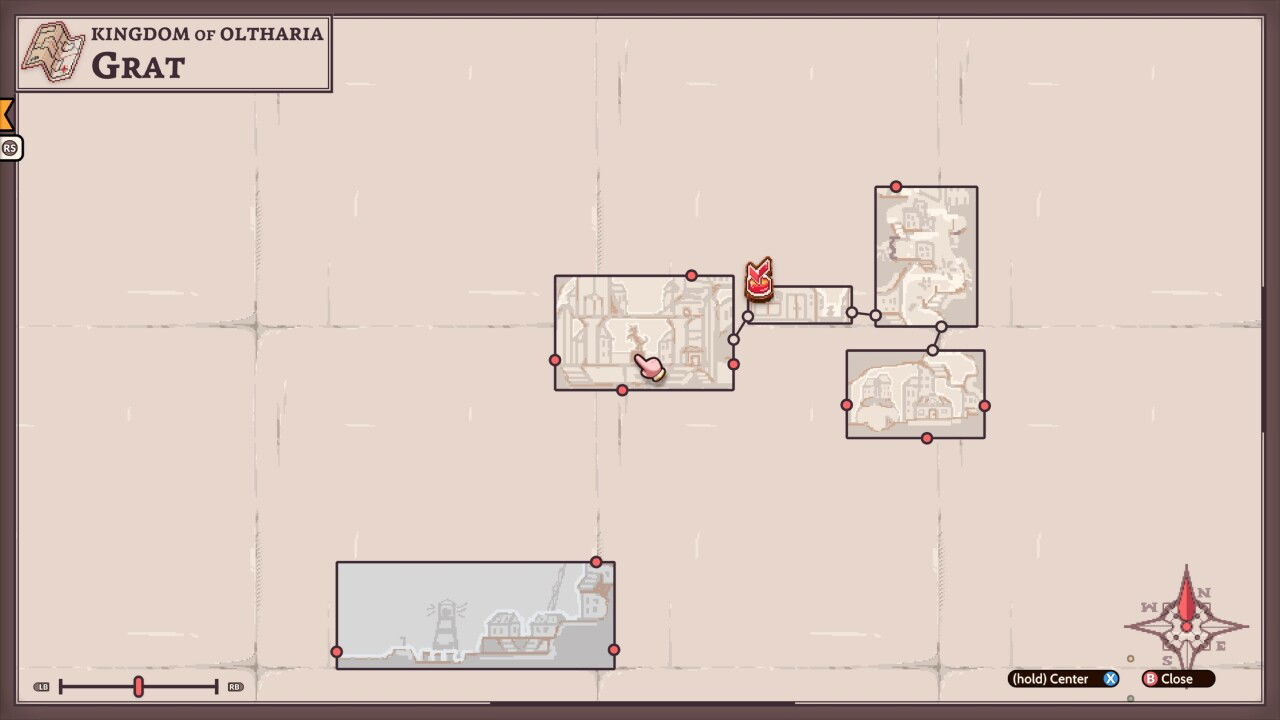
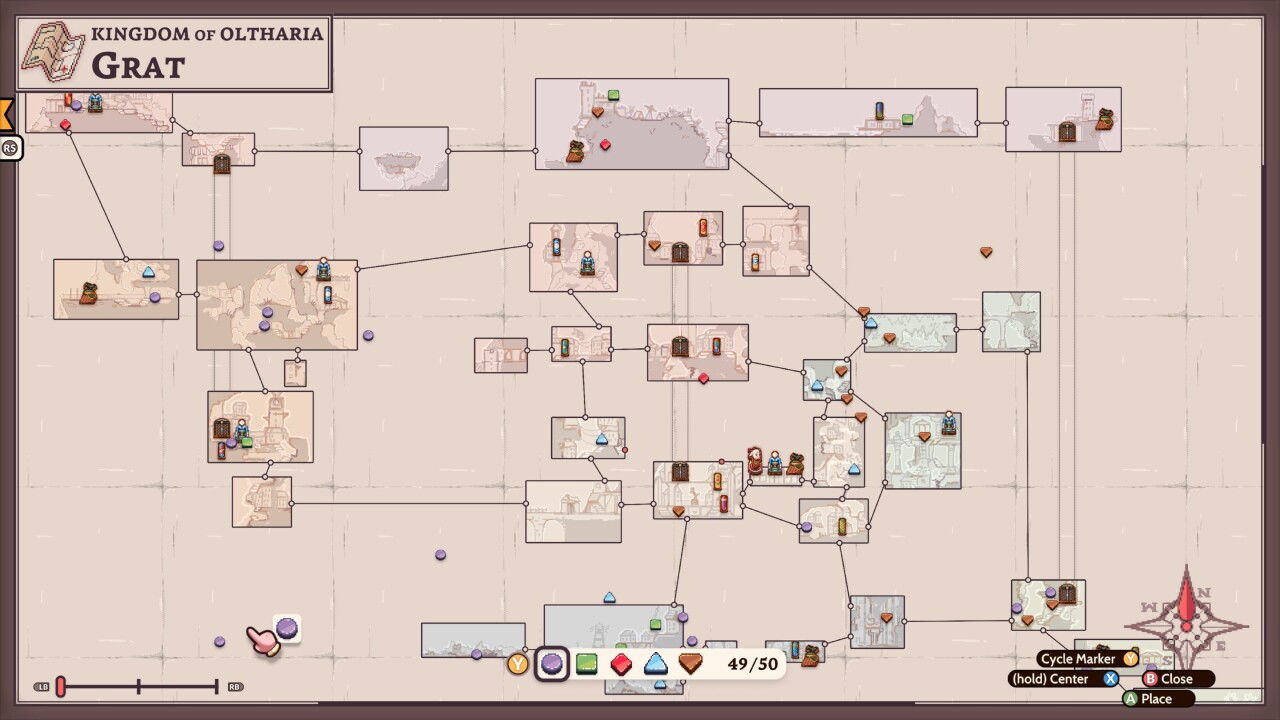
Whitethorn Games publishes the game, and something they often advocate for is accessibility. Magical Delicacy has quite a few options here, including the ability to make platforming less challenging, disabling hold inputs and mini-games, fonts, dialogue speed and animation and more. Personally, I enjoy my cozy games super cozy, so I implemented the easy platforming. Still, I see a lot of options here that will be helpful to a variety of players. Something that isn’t optional, though, is the use of a controller, even on a PC, so make sure you have one handy!
The gameplay loop in Magical Delicacy mostly consists of platforming to explore and find new areas, meet the other townsfolk, cook them delicious meals and repeat. It’s not a short loop, even if it sounds like it. There is no combat, but that doesn’t mean there are no challenges. Traversing itself consists of so many different mechanics, like disappearing platforms, some that only show at night, some that crumble when you stand on them, and that doesn’t even take your abilities into account later on.
Right from the start, I could tell Magical Delicacy was going to be an adventure simply because of the size of the map. You have to explore to uncover it, but the amount I could zoom out was intimidating. In order to progress in the game, you’ll need to explore that map, meet the townspeople and slowly unlock items that can help you traverse, mark the map, and cook.
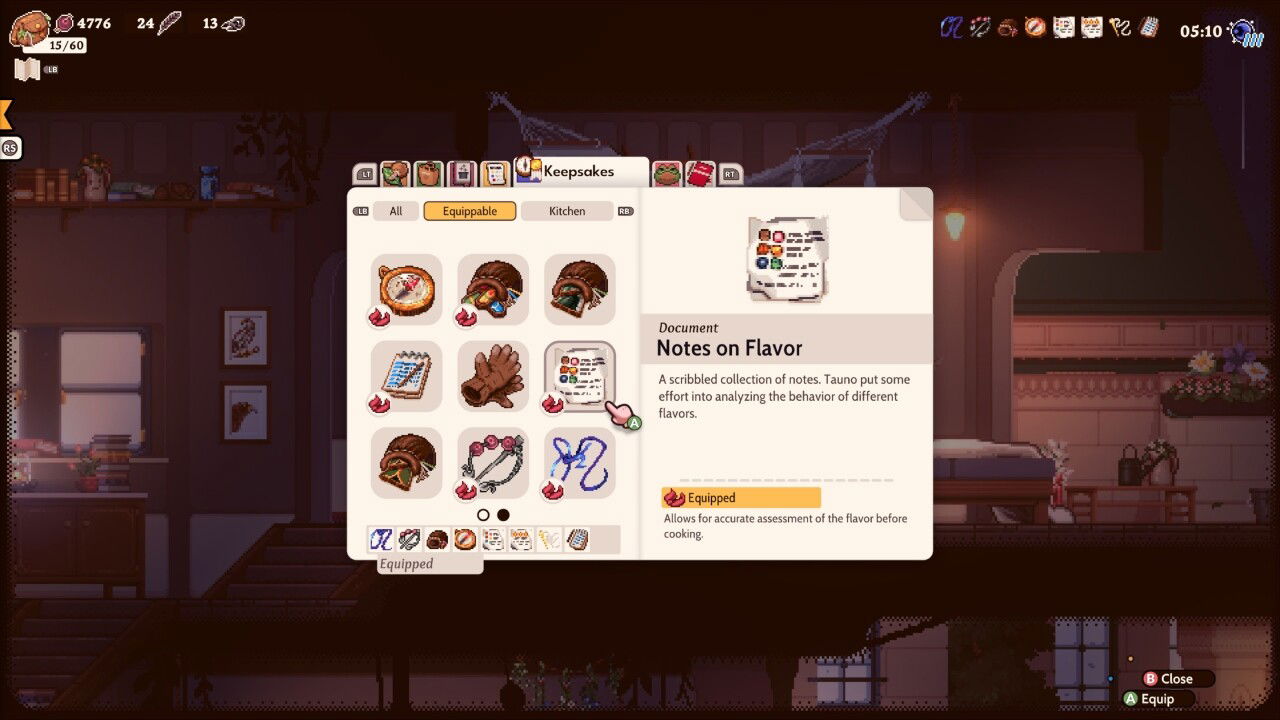
Items for your kitchen include items like a cutting board, pot or pan, much like Coral Island, but also include notes that will help you develop flavours or quality. Traversal items include a pin that allows you to double jump, a cat form to crawl, or a broom to fly short distances. Map markers were a lifesaver, but also aren’t given outright. You can unlock merchant markers, personal markers and even ones that allow you to find hidden areas.
“Magical Delicacy is best played by taking your time.”
There is no real way to power through Magical Delicacy, and I wouldn’t recommend you try. For the purposes of this review, I was trying to speed run as much as I could, and it made me think I didn’t like the game. It’s because I wasn’t playing it the way it was meant to be played. Magical Delicacy is best played by taking your time. Everything comes in time, whether that is finding a way to get a new perk, ingredient, area or character.
I kept joking that Magical Delicacy is the Elden Ring of simulators, and part of this is due to the “slow and steady” approach, while the other part is a lack of real quests or markers. The game will log which recipes you need to cook, but there were times I was told something like I needed to bring something to the river without knowing where the river was or how to bring it.
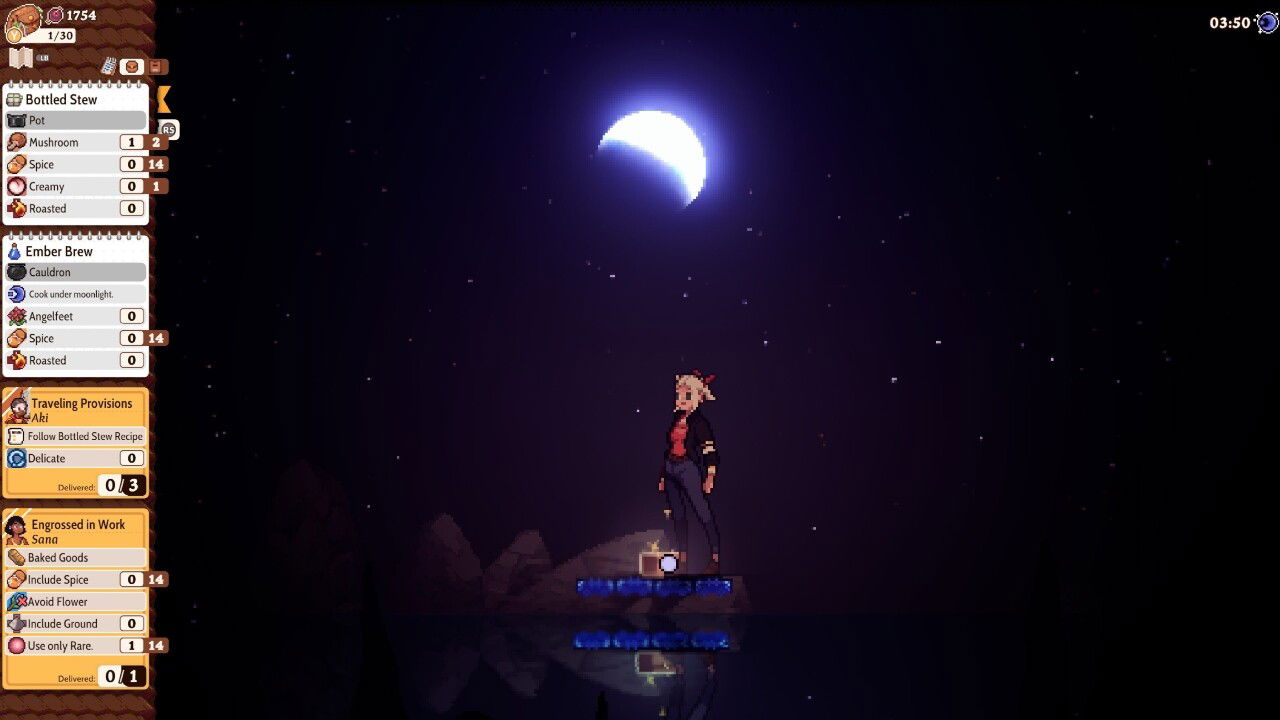
Now, all of these praises would have you think I was sold from day one, but the truth is, I really didn’t think I liked Magical Delicacy for the first 30 hours or so. I was trying to force progression, but it all comes in time. However, I didn’t know this because quests aren’t exactly quests. Outside of recipe missions, quests are more like story beats. Once I figured that out, I couldn’t get to the game fast enough at night to figure out what the next part was. Little bits of information were dropped here and there that made me curious about where the story was going next.
You really need to pay attention to the dialogue with the other characters to figure out what you should be doing. I came to a roadblock so many times, thinking I needed to do X when it was really Y, or I just needed to wait a little longer or cook a few more meals to progress. There is a section where you can see your last conversation with a character, which could help, but because I would go around and shop or chat often, conversations I needed to revisit were often gone.
I ended up breaking out a notebook and a spreadsheet for Magical Delicacy, and it made my life exponentially easier. It’s one of those games, and I love it. I took note of what each merchant sold—and for what currency, beads, feathers or trinkets—and the details surrounding them. Recipes have the tools needed to create them and a classification like potion, dessert, main dish, etc. Each ingredient has a classification (crop, vegetable, herb, etc.), a quality (common, rare, exotic, etc..), and a flavour (bitter, sweet, sour, etc..).
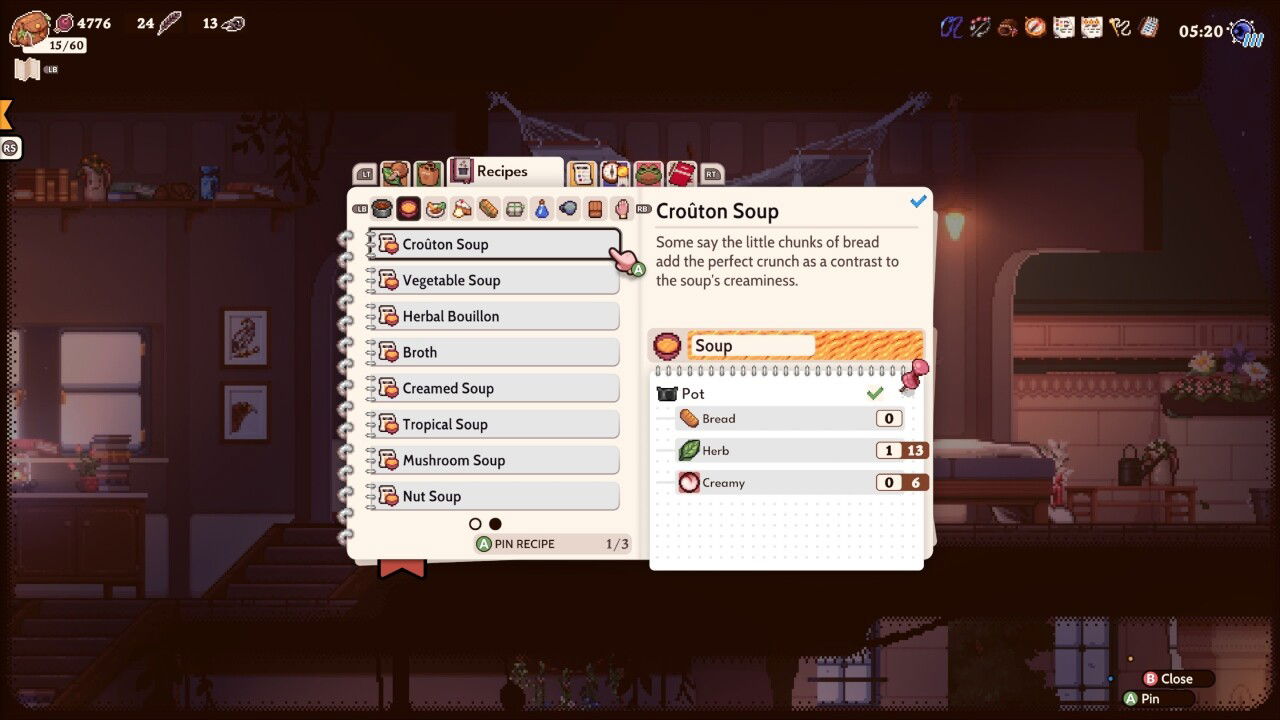
This is all well and good until someone places an order that requires you to use a certain combination of the three or avoid some altogether. It took me forever to figure out that some flavours override others. You eventually get a perk that will tell you how the recipe will turn out, but it is still so much easier when you know how all 14 flavours will interact with each other. Sometimes, you can add extra of one flavour to counteract others, but when you’re limited in how many ingredients you can use, it can get tricky. We will have a Magical Delicacy Flavour Guide coming soon, so keep an eye out!
“Magical Delicacy is truly something special.”
There will be some recipes you gather as you explore or from the townspeople. Others you can unlock by experimenting. I have so many dishes that use a pot because that is where I did all my flavour testing, but I am looking forward to experimenting more with other parts of the kitchen. The more you unlock, the easier time you’ll have to complete those specific recipes I mentioned earlier.
Your kitchen in Magical Delicacy is upgradable and customizable, so as you unlock more spaces, you will be able to sort your new kitchen utensils as you see fit. Personally, I would recommend keeping the sink close to the kettle, pot, and cauldron. You also have a small but quaint garden in the backyard. This helps save some money and foraging time.
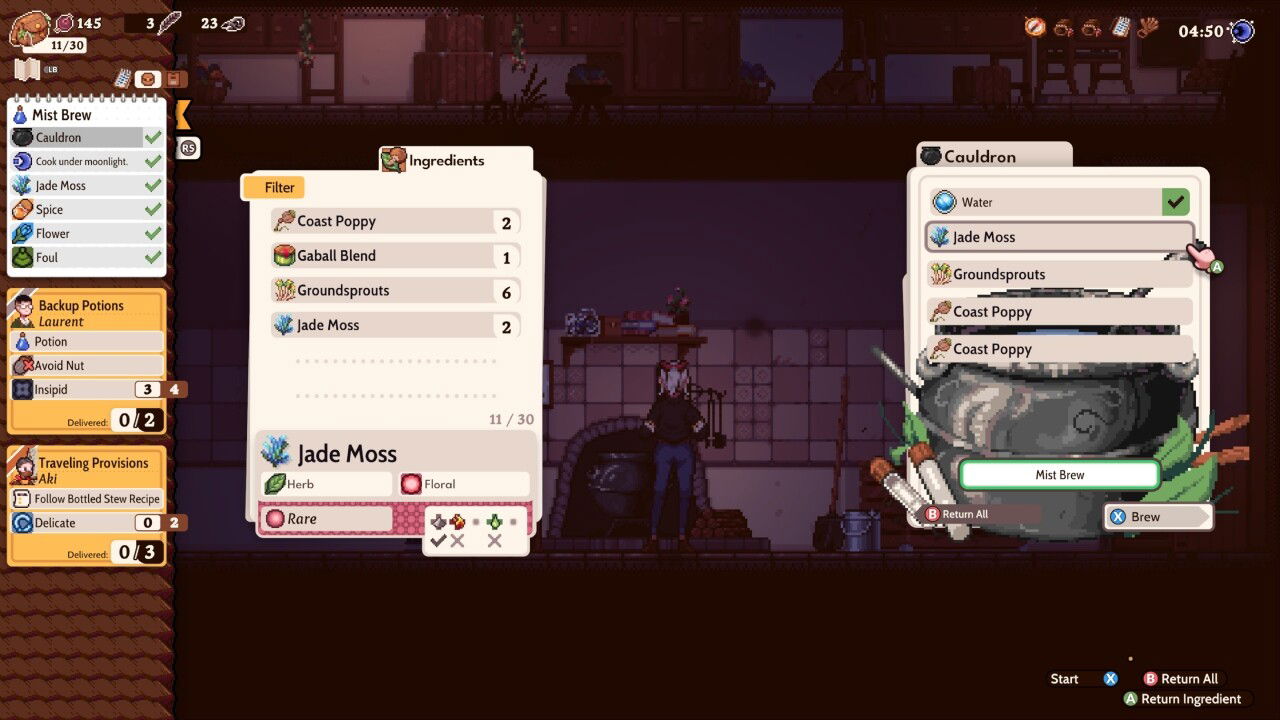
After purchasing three storage spaces with 50 slots each and getting my inventory to 60 slots, I had to stop gardening for a while. I’m a simulator hoarder at heart. Here’s the thing, though: Magical Delicacy encourages experimentation and exploration. So once my storage is full, I spend time in the kitchen testing new recipes for meals and selling them in the walk-up window that you unlock.
Once your ingredients are gone, you can either do a lap shopping and foraging as merchants restock and plants regrow, or you can plant some of the plantable ingredients in your garden. Not all ingredients are available via foraging or planting, so make sure you keep an eye on where you need to buy those ones.
“Magical Delicacy is a simulator that brings a level of challenge and exploration to the table that I don’t often see in other games.”
That said, there are a few things that caused problems during my playthrough. Occasionally, abilities that required recharging wouldn’t work. They would either freeze, forcing me to reload or simply not start at all unless I moved around a lot or left and re-entered an area. The double-jump feature feels a hair too short for many of the platforming areas. With the accessibility options Magical Delicacy has, there is no double jump assist, so I can see this being a problem for those looking for easier platforming—like me!
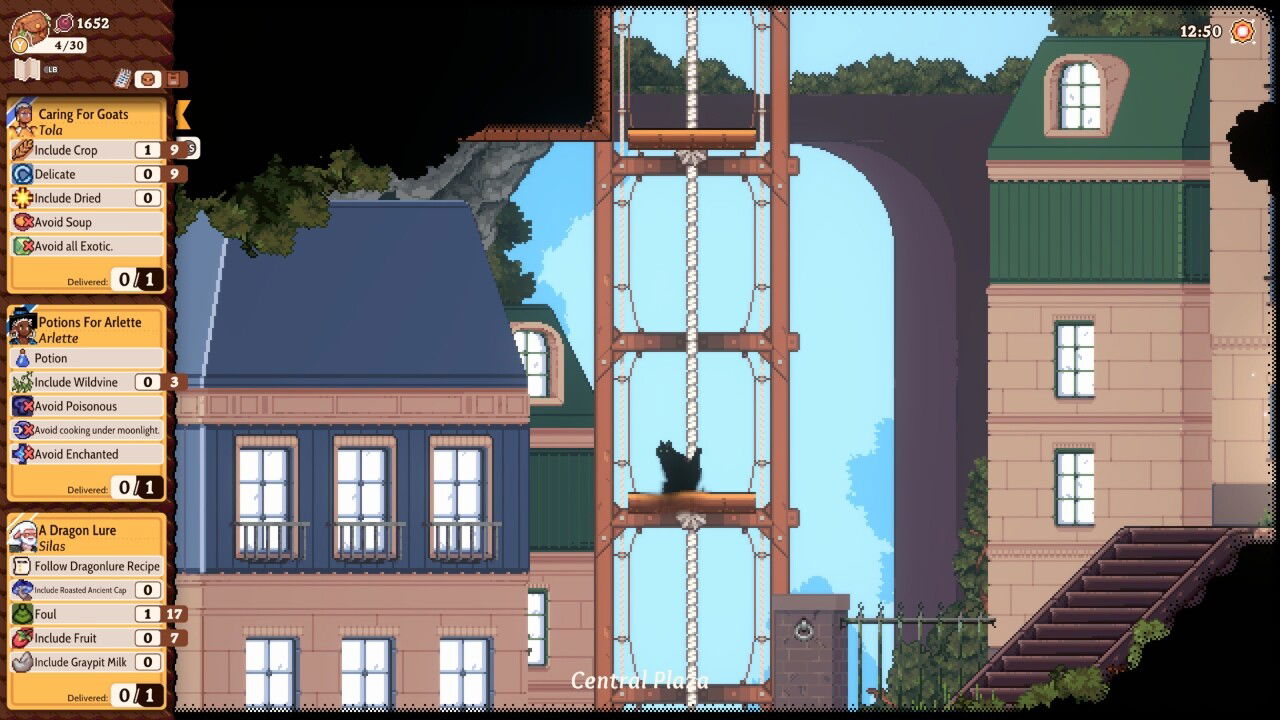
There are also additions that I don’t think are necessary, apart from adding a bit of flair. There are mini-games to choose your ingredients and prepare your meals, but if you fail, there is no penalty, and you just press the button to do it again. You can turn this off if you like. It doesn’t add much. I also found that the help, such as notes on taste and so on, came too late in the game, as I found myself banging my head against the wall, thinking I was doing something wrong when I couldn’t meet the recipe requirements. I’m also a fan of quests and recipes, but I think that’s just me wanting a more relaxing game.
Magical Delicacy is a simulator that brings a level of challenge and exploration to the table that I don’t often see in other games. It doesn’t turn into the daily monotony you find in a farming simulator, and the story itself is what keeps you wanting to progress. Between its adorable art style, chill soundtrack and endless hours of content, it is more than worth the $24.99 price tag. If you allow yourself to sit back and relax and let the game unfold in its own time, Magical Delicacy is truly something special.

